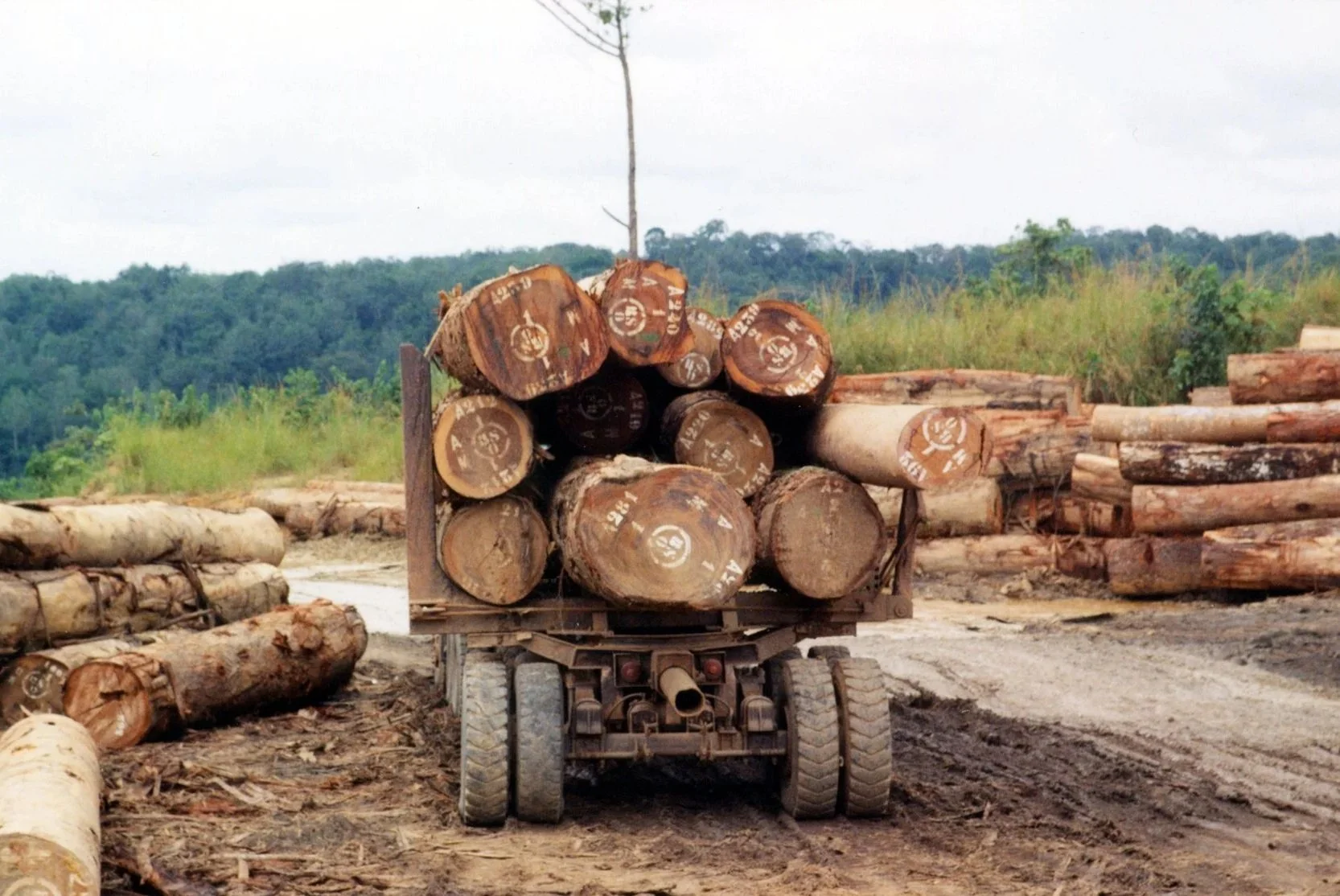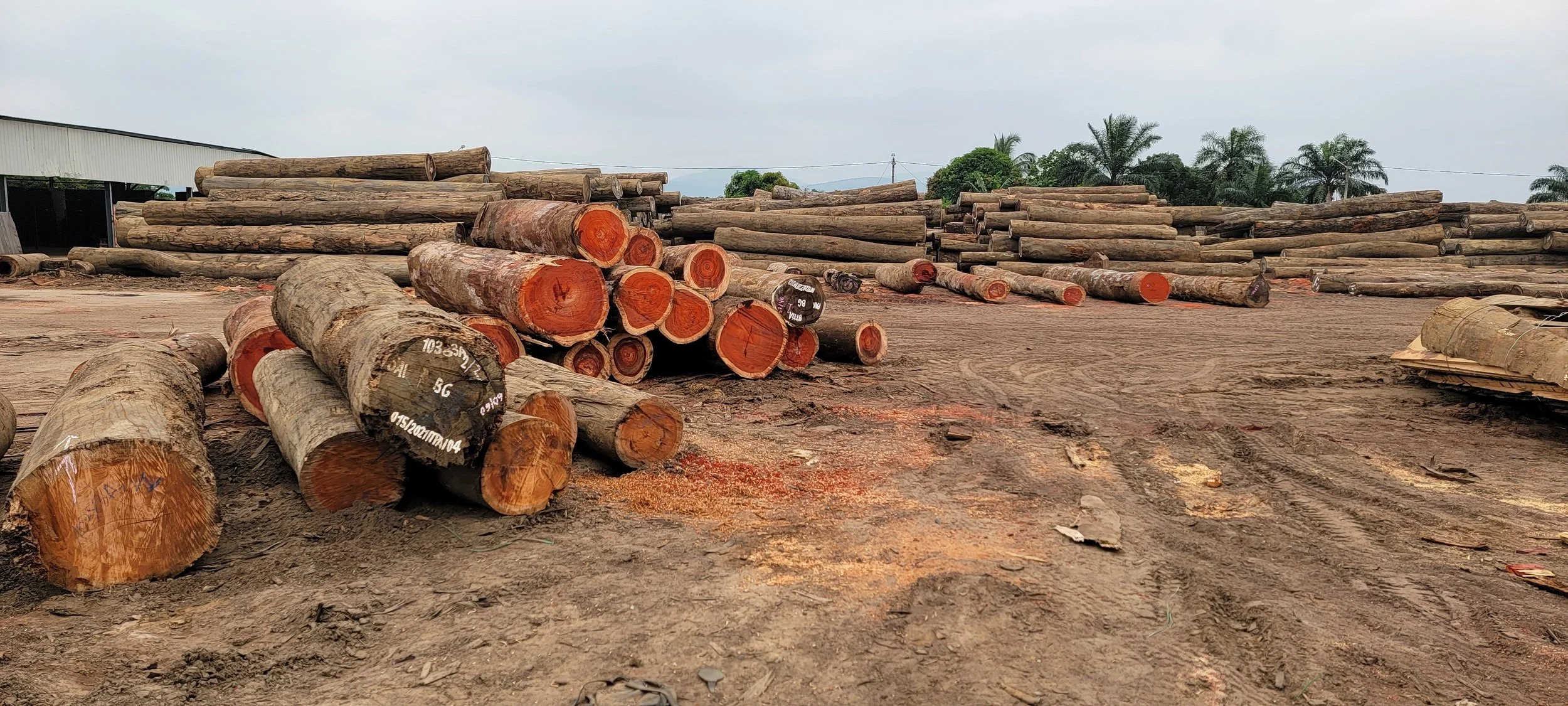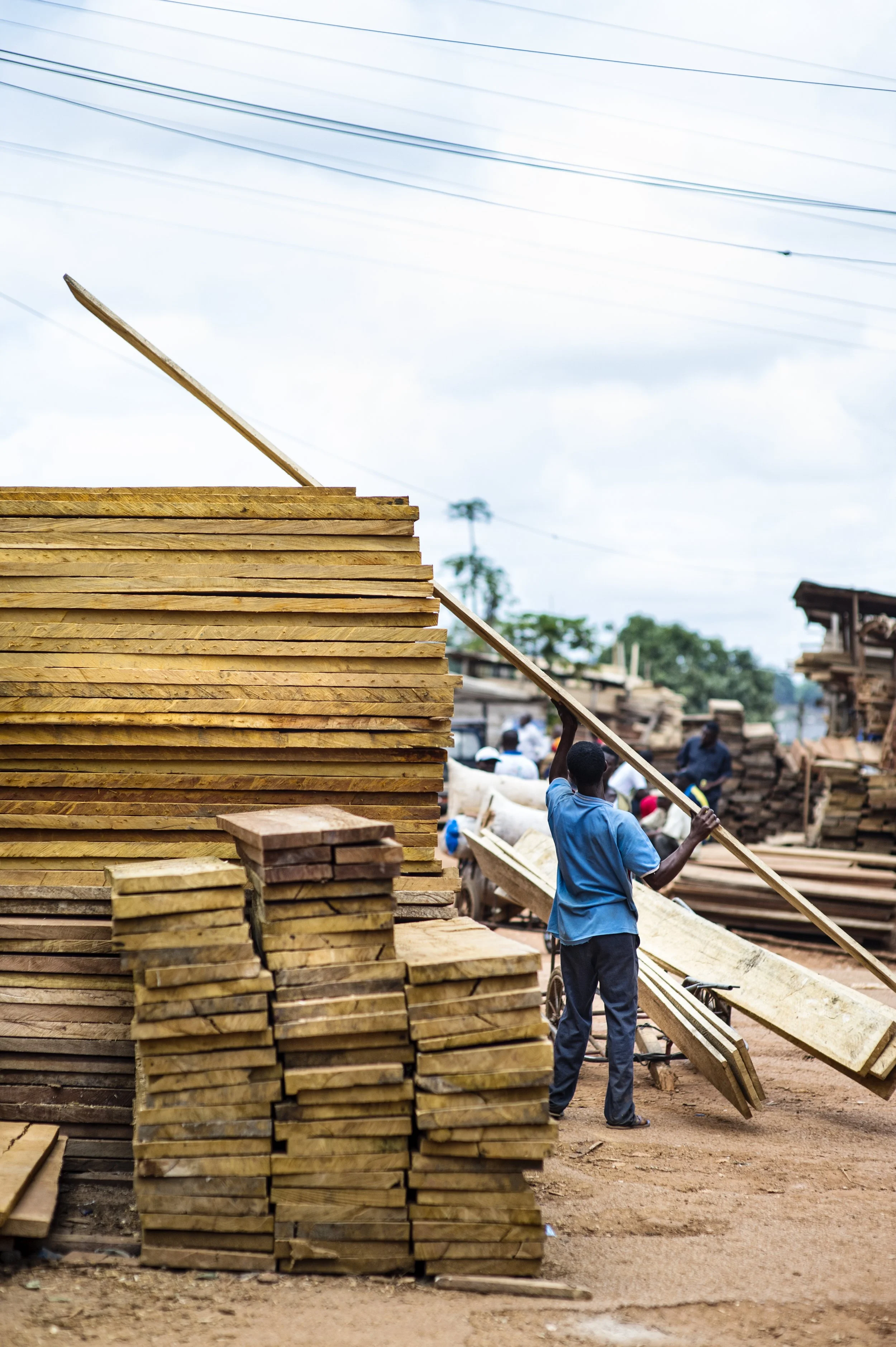
In 2024, 1.1 million cubic meters of logs worth USD $325.5 million were illegally exported from the Congo Basin to China.
The conservation of the Congo Basin rainforest - often referred to as the “second lungs of the earth” - is critical to addressing the global climate and biodiversity crises.
Photo by JG Collomb, World Resources Institute, 2001
Full log export ban: all exports of logs from the country are illegal by law
In transition: the country has committed to meeting CEMAC’s 2028 deadline for introducing a full log export ban, or already has adopted laws restricting the species or volume of logs that can be legally exported
One of the main drivers of deforestation and forest degradation in the region is illegal logging. Research has shown that the worst actors in the Congo Basin’s industrial logging sector are highly dependent on log exports, and that an implemented log export ban is a critical policy tool towards addressing illegal logging.

Photo by EIA US
The export of logs from the Congo Basin perpetuates the extraction of unprocessed raw materials from Africa for export. Across the Congo Basin, several countries have adopted or are progressively implementing log export bans, which require domestic processing of all timber before export. In 2024, the government of DRC joined the six states of the Economic and Monetary Community of Central Africa in announcing a regional log export ban that would go into effect as of January 1, 2028. But import data shows that implementation is lagging behind policy in the region, with illegal exports continuing even in countries with full log export bans.
Photo by EIA US
Photo by Ollivier Girard/CIFOR
Congo Basin Countries
Cameroon currently has a ban in place on the export of logs for 76 species, while log exports are permitted for a further 28 species subject to volume restrictions.
Republic of the Congo (Full ban)
Democratic Republic of the Congo (Partial Ban)
DRC adopted a log export ban in its 2002 forest code, but has to date not issued implementing regulations that would enforce the ban. The ban also provides a 10-year period at the beginning of operations during which a company can export up to 30% of its production by volume in the form of logs.
Central African Republic (Partial ban)
In the Central African Republic, the law requires loggers to process 70% of their production locally. To comply with the CEMAC decision, the authorities have made a readjustment as follows: 80% in 2025, 90% in 2026, 95% in 2027 and 100% in 2028; some logging companies are making efforts to process all of their production by this date.
Photo by Ollivier Girard/CIFOR
The current quarter’s data is not complete until the quarter concludes.


